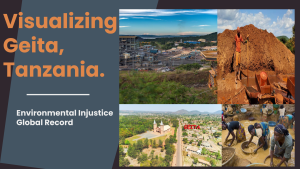Visualizing Geita
xxxx

xxxx

Written by: Tony Cho
Research conducted by: Seowoo Nam, Dohee Jeon, Jiyun Lee, Tony Cho
Written by: Tony Cho
Research conducted by: Eunbin Cho, Yuwan Kim, Heewon Kim, Tony Cho

Slow Futures Laboratory presents the Slow Seoul Workshop.
Emergency response is addressed in terms of both long term response and future emergency prevention. The method used by the PIH in both Haiti and Rwanda were implemented in response to high rates of disease in those places, showing that an emergency can occur gradually and the response may require creating a permanent system. Prevention is also discussed as a portion of emergency response, that it is important not only to deal with emergencies as they occur but also to identify the causes and change the system to prevent the same emergency in the future.
The author supports the main argument with detailed analysis of the actions of humanitarian aid groups, a brief history of the changing public and legal perceptions of domestic abuse and sexual violence, and reports by the media and humanitarian aid organizations. The use of public opinion as well as the legal aspect of political change highlights the necessity for the public to drive change in social issues such as sexual violence in order to have practices become political action.
The primary method of supporting the main argument is a series of historical examples including policies such as those created by the World Health Organization, outbreaks including AIDS, and previous attempts to provide health security such as the Smallpox Caccination Program. The use of these examples highlights the changing nature of health problems and how that effects the type health security. Specific dates and data from the examples is included, which allows for a more detailed analysis to support the main argument.
Users input contact data and video recordings
Artisanal or Snall Scale Mining in Geita.